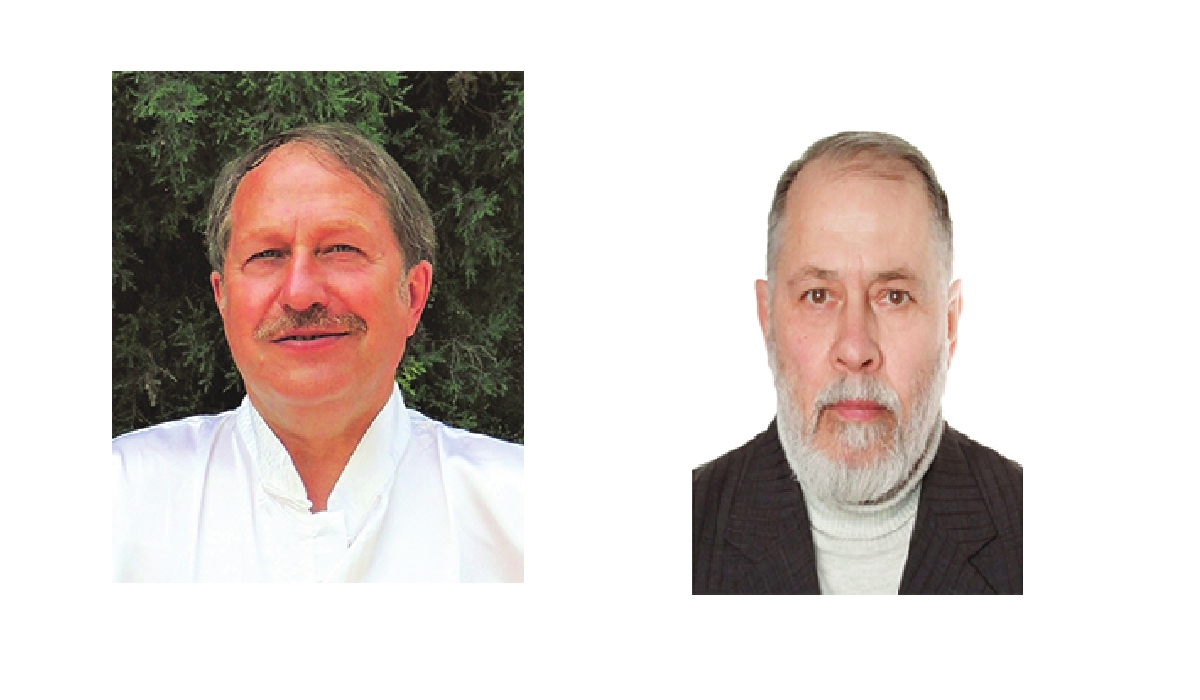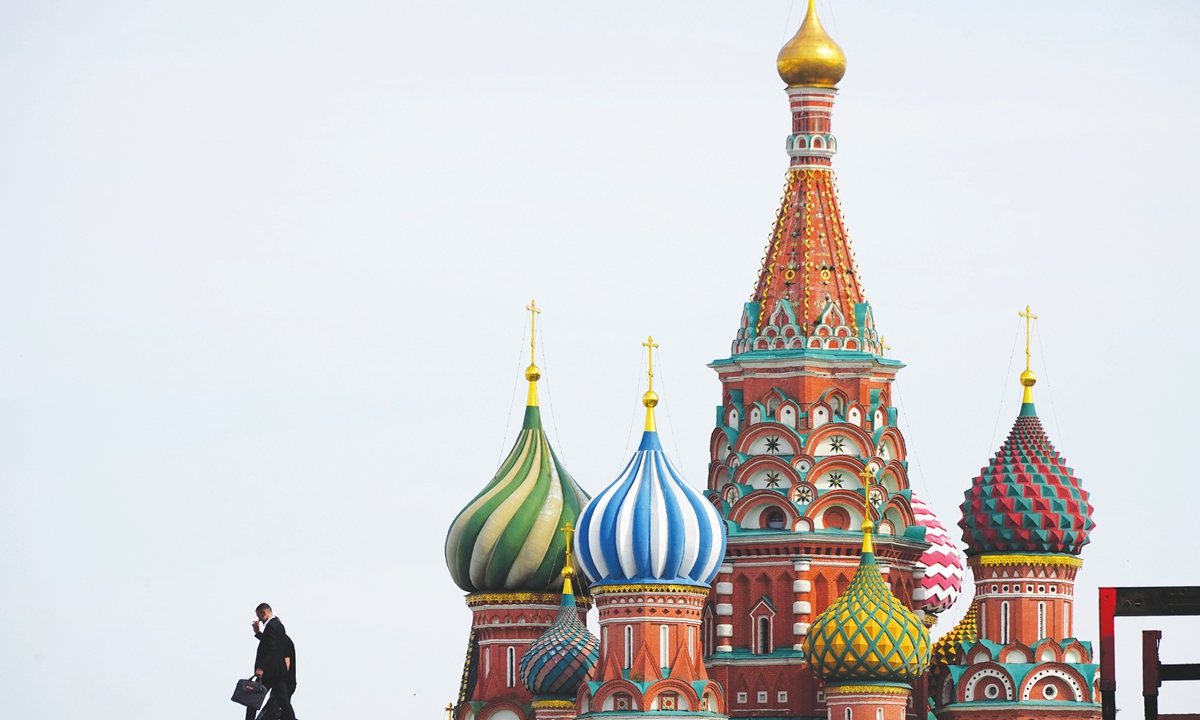Editor’s Note:
As the world tries to keep up with the changing stories about the Wagner private military group, the incident has subsided. Yet some people in the Western world won’t let it go, with their rhetoric changing from Russia’s “civil war” to “cracks” in Russian President Vladimir Putin’s rule. What was the public mood in Russia over the episode? How to interpret Western reactions to the incident?
Two Russian scholars, Yury Tavrovsky (Tavrovsky), deputy chairman of the Russian-Chinese Friendship Society and head of the expert council at the Russian-Chinese Committee for Friendship, Peace and Development, and Vladimir Pavlenko (Pavlenko), Russian political scientist, research fellow at the Moscow-based independent public scientific organization Academy of Geopolitical Problems, shared their views with the Global Times (GT).

Yury Tavrovsky (left) and Vladimir Pavlenko (right)
GT: What was the public mood in Russia from the beginning to the end of this incident? Are you concerned that this episode will impact Russia’s internal unity?
Tavrovsky: The initial reaction to the Wagner incident was a big surprise. However, the general public in Moscow and elsewhere does not blame the Wagner and is happy that the incident is over without Russians killing Russians.
Pavlenko: The course of events showed that Russian society supported its leader. The prevailing view was that no merits, including those obtained on the front line, can justify rebellion. People, including those who admired the Wagner-style of fighting and paid tribute to its soldiers’ combat ability, heroism and tenacity, have showed their unequivocal support for the president – the national leader. They also admitted that bloodshed must be avoided at all costs. As the most irreparable thing, this was avoided.
GT: As a Russian scholar, what do you think this incident should prompt Russia to reflect upon?
Tavrovsky: The Wagner incident demonstrated the stability of Putin’s position as the President of all Russians and also highlighted the final “red lines” for mistakes by his close associates.
Pavlenko: The main conclusion that we all learned from the collapse of the Soviet Union 32 years ago can also answer the question of the current situation: No interests of external groups, much less corporations, are worth anything compared to internal patriotic unity.
And the second conclusion can be drawn on friendship and mutual assistance between the republics of the former Soviet Union. This is the third such case in the last three years. In 2020, assistance was required from Belarus, and Russia provided it. In 2022, there was turmoil in Kazakhstan. If it were not for the rapid response of the Collective Security Treaty Organization (CSTO), the country might not exist in its current form. Now our brothers came to our aid during the situation in Russia on Saturday.
GT: How will this incident affect the war between Russia and Ukraine?
Tavrovsky: The Wagner incident will not have the impact on the war between Russia and Ukraine that the West anticipates. Russian troops are loyal to Putin and see him as the national leader in crucial times of confrontation with the West.
GT: What do you think about the West’s reaction to this event?
Tavrovsky: Western mainstream media and the expert community’s reactions can fool misinformed audiences in the West, but they cannot be successful in Russia. The mood of the Russian people is patriotic and even nationalistic because of the war and economic sanctions. This sentiment became statistically prevalent after thousands of pro-Western businessmen and intellectuals left Russia. After overcoming initial hardships the majority of Russians are confident that their country can survive and develop even when surrounded by enemies as in Soviet times.
The Wagner incident does not give the West a real chance because both the Wagner brigade and regular troops are Russians and they equally hate their enemies on the front line. The Wagner brigade currently is going back to the trenches.
Pavlenko: The West is very fond of wishful thinking, and the Anglo-Saxon political tradition is that it always operates on the principle of “divide and conquer!”Amid their excitement about what was happening in Russia, the whole West and other American pawns discussed the “situation in Russia,” dreaming of a coup similar to the one in Kiev in 2014. The Anglo-Saxons are following a pattern. They succeeded in [changing the regime] in Moscow in 1991 and in Kiev in 2014. Ever since the famous “Long Telegram” from George Kennan, the US and its allies have pinned their hope on the internal undermining of Russia.
Why have Westerners adopted this strategy? Because all the past European experiences show that the West is unable to defeat Russia militarily in an open confrontation. But the West also fails repeatedly in using Russia’s internal opposition to the government because it fails to take two things into account. Firstly, the patriotic opposition will not go against the state and the people – neither the opposition parties in the State Duma nor the parties outside the State Duma ever do. Secondly, Russians, endowed with the most powerful state consciousness, always remain on the side of the state because they understand that only the state guarantees their survival in history.
GT: Some Western media are also taking this opportunity to call for stronger leadership in NATO, such as the British newspaper The Sun, which said that the West “needs strong leadership in NATO like never before amid chaos in Russia.” What’s your take on this?
Tavrovsky: Strong leadership in NATO is a mirage because of different national interests of the member nations and ambitions of their leaders. Their leader in America is frequently unreliable and unpredictable. Just a few years ago president Donald Trump was talking about dismissing the bloc and God knows what twists and turns the next president will invent for the US and its satellites. NATO is spreading its activities to the Indo-Pacific but at the same time presidents and ministers are waiting for an invitation from Beijing to discuss new businesses. Inside NATO there are already some “Wagner brigades” waiting to say their own words.
Pavlenko: First, there is no chaos in Russia, but a state system that successfully carries out all of its tasks and obligations, including social ones, even under force majeure conditions such as combat operations.
Second, it turns out that The Sun believes that the current NATO leadership is weak. That’s an interesting point that deserves further consideration.
Third, if NATO were to start reforming its system now, it would likely crumble. Because Europeans, who are obsessed with settling scores with Russia, will demand an increase in their share of political leadership and military command. If you want to ruin everything in military affairs, just propose “democracy” and “collective leadership,” and the result will exceed all expectations.













